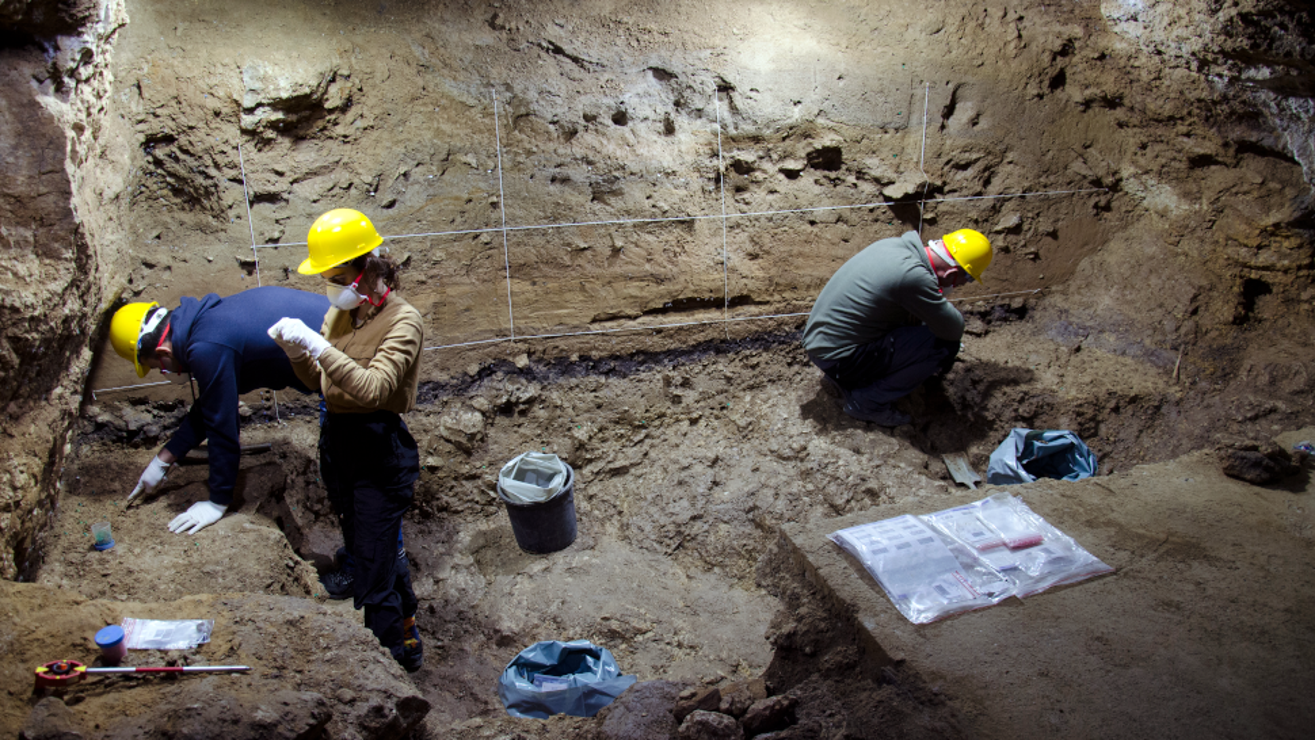Archaeologists working in Bacho Kiro Cave earlier this year.
Image: Tsenka Tsanova, MPI-EVA Leipzig, License: CC-BY-SA 2.0
Image: Tsenka Tsanova, MPI-EVA Leipzig, License: CC-BY-SA 2.0
Europe was considerably colder 44,000 years ago than previously thought, according to new research. The finding is forcing a rethink about early human migration patterns and where our ancestors preferred to settle.
“The expansion of Homo sapiens across Eurasia marked a major milestone in human evolution that would eventually lead to our species being found across every continent,” write the authors of new research published today in Science Advances.
But scientists still aren’t sure how early modern humans managed to pull off this remarkable migrational trick, given considerable environmental variations around the world. The new study, co-authored by Sarah Pederzani from the Max-Planck-Institute for Evolutionary Anthropology, sought to explore the climatic conditions experienced by Homo sapiens when venturing from southwest Asia to Europe.
Read the rest of this article...

No comments:
Post a Comment
Note: Only a member of this blog may post a comment.